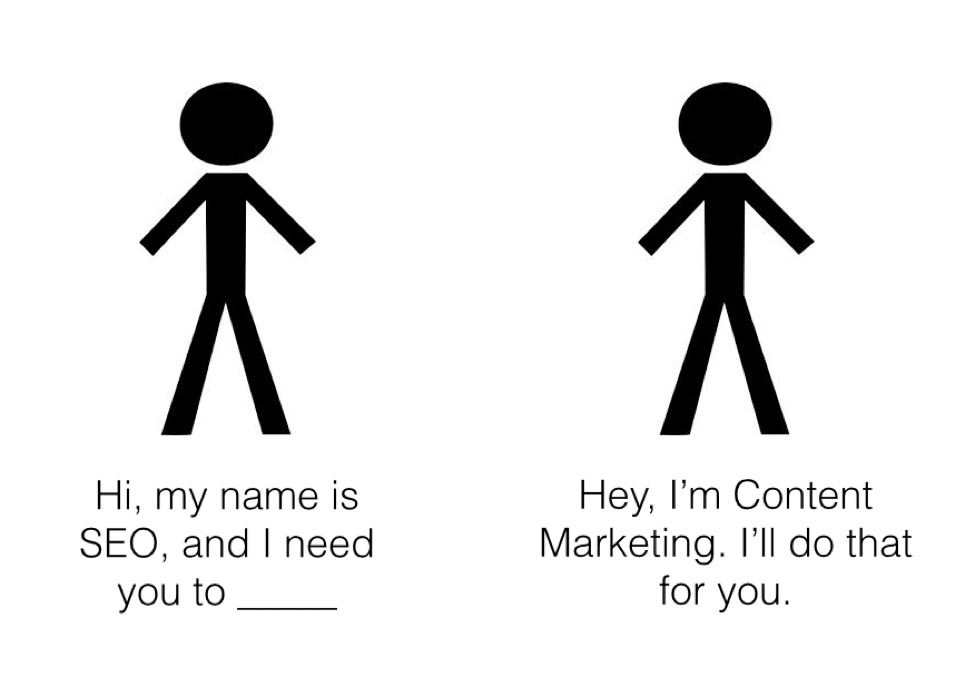Content VS SEO from the experts
When it comes to content versus SEO (Search Engine Optimization), experts often emphasize the importance of finding a balance between the two. Here are some insights:
Quality Content First: Content is crucial because it's what engages and informs your audience. High-quality content that is valuable, informative, and well-written tends to perform better in terms of user engagement, sharing, and ultimately conversions. Without good content, SEO efforts can only do so much in attracting and retaining visitors.
SEO Enhances Visibility: While content is foundational, SEO helps ensure that your content reaches its intended audience. This involves optimizing your content with relevant keywords, improving site speed and mobile-friendliness, using proper metadata, and obtaining quality backlinks. These practices help search engines understand and rank your content appropriately, improving its visibility in search results.
User Experience Matters: Both content and SEO should focus on enhancing the user experience (UX). This includes providing easy navigation, fast-loading pages, mobile optimization, and relevant content that meets user intent. Search engines like Google prioritize websites that offer a good UX, which often correlates with well-executed SEO and valuable content.
Integration for Success: The most effective approach is integrating content and SEO strategies seamlessly. This means creating content that naturally incorporates relevant keywords, provides answers to common questions, and addresses user needs. Good SEO complements good content by making it more discoverable and ensuring it meets technical standards for ranking.
Long-Term Benefits: Building a strong foundation of quality content supported by effective SEO can yield long-term benefits. Over time, as your content gains authority and ranks well, it can attract consistent organic traffic and establish your site as a credible source in your industry.
In summary, while content and SEO are distinct disciplines, they work best when integrated and aligned toward the common goal of providing valuable information to users while ensuring it's discoverable and well-ranked by search engines. Balancing these aspects helps maximize both user engagement and search engine visibility, ultimately leading to more effective digital marketing outcomes.
from
https://intitute.blogspot.com/2018/10/content-vs-seo-from-experts.html
Content Marketing vs. SEO: The Truth Behind A Ridiculous Debate
- SO BE IT.
- HAVING AN UNPOPULAR OPINION IS A POWERFUL WAY TO POLARIZE THE AUDIENCE AND WIN FAVOR WITH THOSE IN YOUR CAMP.
Content marketing and SEO do not compete with each other
You could make the case that SEO is content marketing
It’s time to think holistically
Technical SEO vs content marketing: Which should SEOs focus on?
- Struggling with site-wide rankings: Typically this is the result of an underlying technical issue, so technical SEO should be the priority area to focus upon.
- Internal cannibalization: If rankings are low because you frequently have multiple pages trying to rank for the same keyword, then one effective solution is to look at and edit the content on these pages.
- Product pages (with multiple configurations) not ranking: If a product page has multiple options to it in color/shape/size/style, and all of these are controlled by the user, it’s likely that a technical issue is causing inefficient crawling or indexing of these products.
- Product pages with affiliates/stockists not ranking: If you’re selling another brand’s products, or work with affiliates or stockists of your products, when these are under-performing online, it’s often the result of duplicate content issues externally. The best solution here is to revise your content and optimize what is currently on your site.
What's The Difference Between Content
Marketing And SEO?
I demystify SEO and online marketing for business owners.
Content Marketing vs. SEO
The Reality of Content Marketing and SEO
A Deeper Look into Content Marketing
Goals of Content Marketing
- Brand awareness for an individual or company
- Lead generation and conversions
- Prospect nurturing
- Revenue generation
Components of Content Marketing
- Define objectives
- Identify the target market and buyer personas
- Document the prospect’s buying cycle
- Create a strategy and plan
- Create compelling and useful content
- Promote content
- Define metrics and review available reporting
A Deeper Look into SEO
Goals of SEO
- Discover the proper keywords that relate to a given target marketing or audience
- Improve ranking of specific keywords in search engines
- Drive visitor traffic to a website
- Generate revenue
Components of SEO
- Perform keyword research and define focused keywords
- Establish a proper site structure by mapping focused keywords to content
- Create compelling and useful content
- Optimization content for on-page SEO factors
- Promote content via social media
- Build internal links to focused content
So Who Wins the Content Marketing vs. SEO Battle?
- 88% of B2B marketers use content marketing. (Content Marketing Institute)
- Only 30% of B2B marketers feel their organization is effective at content marketing. (Content Marketing Institute)
- Search is the #1 driver of website traffic. (Outbrain)
Why SEO Is Actually All About Content Marketing
The Problem: SEO and content marketing are not integrated.
There are differences between SEO and content marketing.
- SEO is narrower, and more technical.
- Content marketing is broader and more holistic.
- The way to apply SEO in a broader way is to channel its specific technical endeavors into content marketing.
- Conversely, the only way to ensure the success of content marketing is to apply SEO techniques in its implementation.
How SEO and Content Marketing Come Together



